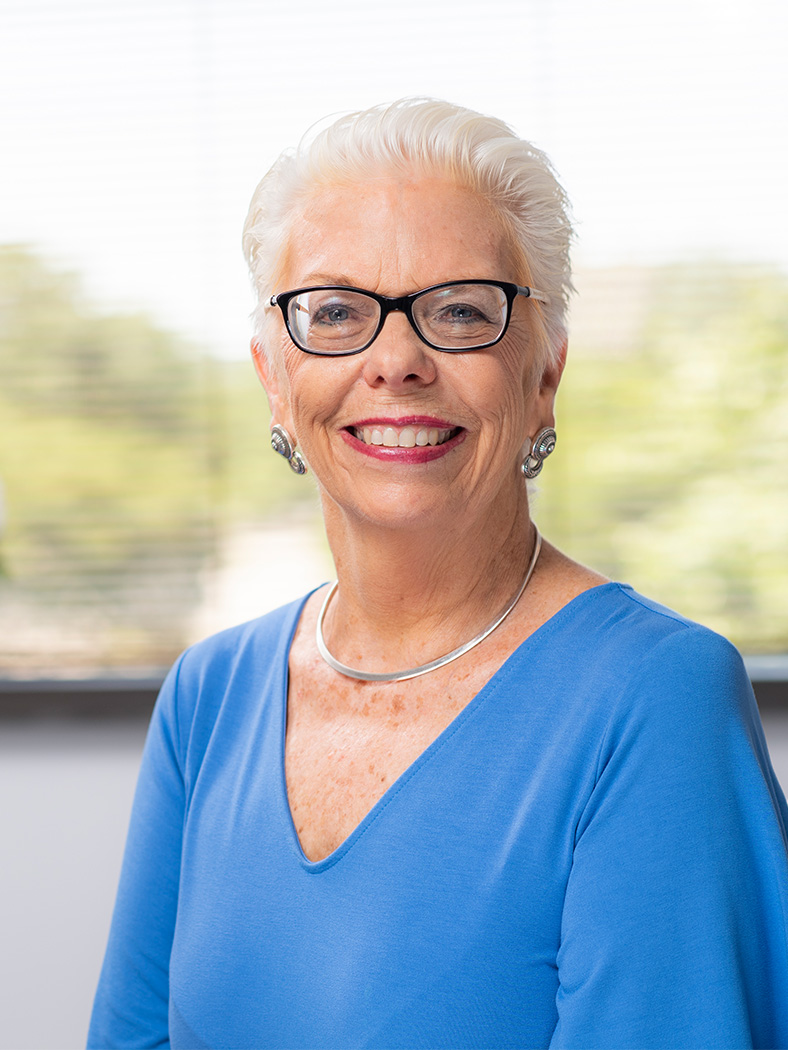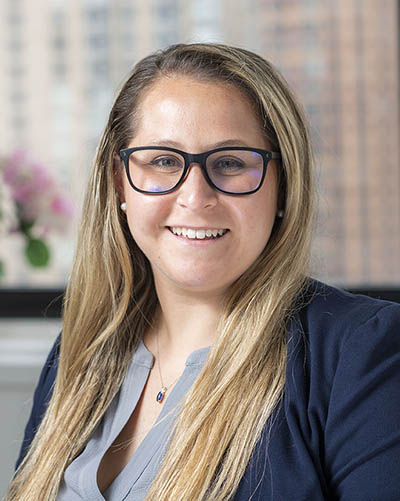Resource Navigation
Learn more about how CancerCare Resource Navigation can help you address barriers to care.
Support Groups
Connect with others in our free support groups led by oncology social workers.
Online
- Brain Tumor Caregiver Support Group
- Caregiver Support Group — Spouses/Partners
- Caring for a Loved One With Cancer Support Group
- Caring for an Adult Child With Cancer Support Group
- LGBTQ+ Spouse/Partner Caregiver Support GroupNew
- Lung Cancer Caregiver Support Group
- Pancreatic Cancer Caregiver Support Group
- Young Adult Caregiver — Spouses/Partners Support Group
- Young Adult Caregiver Support Group
Live
- Connecting With Caregivers: General Support Group (New York, Video)
- Connecting With Caregivers: General Support Group (New Jersey, Video)
- Connecting With Caregivers: Young Adult Support Group (New York, Video)
Connect Education Workshops
Listen in by telephone or online as leading experts in oncology provide up-to-date information about cancer-related issues in one-hour workshops. Podcasts are also available.
Podcasts
Caregiving
- Non-Small Cell Lung Cancer: For Caregivers - Practical Tips for Coping, Dec 16, 2025
- For Caregivers: Coping with the Stresses of Caregiving When Your Loved One Has Triple Negative Breast Cancer, Oct 29, 2025
- For Caregivers: Practical Tips to Cope with a Loved One’s Bladder Cancer, Aug 27, 2025
- Children as Caregivers for a Loved One with Cancer, Jun 24, 2025
- Coping with the Stresses of Caregiving When Your Loved One Has Multiple Myeloma, Apr 3, 2025
- Non-Small Cell Lung Cancer for Caregivers: Practical Tips for Coping, Jan 14, 2025
- For Caregivers: Practical Tips to Cope with a Loved One’s Bladder Cancer, Nov 20, 2024
- For Caregivers: Coping with the Stresses of Caregiving When Your Loved One Has Triple Negative Breast Cancer, Nov 13, 2024
- For Caregivers: Coping with Your Loved One’s Metastatic Prostate Cancer, Nov 12, 2024
- Caregiving for Your Loved One with Cancer, Sep 23, 2024
- Non-Small Cell Lung Cancer: For Caregivers, Jun 25, 2024
- For Caregivers: Practical Tips for Coping with Your Loved One’s Chronic Lymphocytic Leukemia (CLL), Jun 13, 2024
- Caring for Your Loved One with Cancer, May 13, 2024
- Coping with the Stresses of Caregiving When Your Loved One Has Multiple Myeloma, Mar 21, 2024
- For Caregivers: Practical Tips to Cope with a Loved One’s Bladder Cancer, Jan 31, 2024
- Veterans Living with Cancer, Jun 26, 2020
Publications
Read or order our free Connect booklets and fact sheets offering easy-to-read information about the latest cancer treatments, managing side effects and coping with cancer.
For Any Cancer Diagnosis
- ¿Qué es la navegación de recursos? (What Is Resource Navigation?)
- Advice for Caregivers: Caring for Yourself When Your Child Has Cancer
- Advice for Caregivers: Handling Burnout
- Advice for Caregivers: How Can You Help Yourself?
- Ask CancerCare: Questions and Answers on Coping With Cancer
- Building a Community of Support
- Caregiving and the Coronavirus
- Caregiving at the End of Life
- Caregiving During the Holidays
- Caregiving for a Loved One With a Long-Term Illness
- Caregiving for Your Loved One With Cancer
- Caregiving: Providing Emotional Support
- Caring for a Veteran With Cancer
- Children as Caregivers for a Loved One With Cancer
- Communicating With Your Caregivers and Loved Ones
- Coping With the Stress of Caregiving
- Coronavirus Concerns for Older Adults
- For Caregivers: Coping With Holidays and Special Occasions
- Helping Children Prepare for the Loss of a Loved One
- Helping Your Child or Another Loved One Cope With Hair Loss
- How Counseling Can Benefit Caregivers
- Long-Distance Caregiving
- Managing the Practical Concerns of Social Distancing
- Managing the Practical Concerns of Your Loved One's Diagnosis
- Misinformation and Cancer
- Mobile Applications (Apps) and Cancer
- Music, Drumming, Vibration: Tools to Help Maintain Balance for Cancer Patients and Caregivers
- Shared Decision Making for Caregivers
- Shared Decision Making for Patients
- Telemedicine and COVID-19
- Telemedicine: What You Need to Know
- The Value of Oncology Social Workers
- What Can I Say to a Newly Diagnosed Loved One?
- What Is Resource Navigation?
- Young Adults as Caregivers
For Bladder Cancer
For Prostate Cancer
Financial Assistance
Limited assistance from CancerCare is available to help with cancer-related costs.
Ask CancerCare
Every month, featured experts answer your questions about coping with cancer including specific answers to questions asked by caregivers.
For Any Cancer Diagnosis
- Q.
My dad was diagnosed with cancer last month. He and my mother live in another state, and I have a family of my own so I can't be there to help them out on a daily basis. What can I do to support them from far away?
A.Being a “long distance” caregiver is a unique experience that can be especially challenging. Working to find balance between your own needs and the needs of a loved one with cancer can feel overwhelming for anyone in the caregiver role. But remember, there are many ways you can be supportive and involved in your loved one’s care regardless of the distance between you.
Offering emotional support is one of the most helpful things that you can do for your loved one. Simply checking in and letting your dad know that you are thinking him can go a long way; call, email, Skype, send a card or visit when you can. Those reminders not only show that you care, but may also leave you feeling more connected.
You can also help your parents with day-to-day tasks like managing bills, paperwork and getting organized. Similarly, you can help them navigate the medical system. Dealing with insurance companies, remembering doctors’ appointments and accessing resources can be overwhelming. You can help your family with this by taking on some of the responsibility, communicating with their doctors and nurses, and staying informed. This can alleviate some of the practical challenges for them, while keeping you in the loop.
There are also programs such as My Cancer Circle which exist to help caregivers easily enlist additional support. This online forum creates a sense of community that helps the caregiver, but also ensures that their loved ones needs are met. Family, friends and community members are often looking for ways to help: My Cancer Circle allows them to sign up for specific tasks, like cooking meals or providing transportation, which can help them feel useful and give you some respite and comfort in knowing that these needs are covered.
And lastly, it’s important that you take good care of yourself and your family. Know that there is support available to you, too. CancerCare offers free counseling and support groups that specifically address the needs of caregivers. We offer those supportive services in person, over the phone and online. These services can help you to take care of yourself and your needs, and put you in touch with other caregivers who can relate. This support can be a comforting and powerful experience, so please call us at 800-813-4673 for more information.
- Q.
My grandmother has cancer. I'm worried about her, but even more so, I'm worried about my mom. She tries hard to be strong for everyone, but she is just so run down herself. She seems uncomfortable letting us be there for her. Any advice?
A.Many caregivers find it difficult to accept help. Caregivers often feel a sense of responsibility to take care of things on their own in order for them to feel that they’re doing “enough.” However, this can become quite burdensome, and often leaves the caregiver feeling run down, just as you mentioned your mom is. This fatigue may also be a sign of distress and can indicate a need for more support.
Letting your mom know that you are concerned about her may initiate a conversation about the importance of self-care. It is very true that in order to be a good caregiver, it’s important to take care of oneself – this often starts with the most basic of needs – healthy eating, sleeping and exercise habits. The American Cancer Society’s Caregiver Self-Assessment Questionnaire may identify specific areas where your mom can use more support. This might give you a better idea of how to help her, and how she can help herself.
Framing the conversation about self-care in a way that allows your mom to see how taking these measures for herself will also benefit her mother may make it easier for her to accept. CancerCare has a fact sheet entitled “Caring Advice for Caregivers: How Can You Help Yourself?” that may also give some helpful tips to make all of this more manageable.
Similarly, you may be able to assist by offering to help with specific tasks, like taking your grandmother to treatment or grocery shopping. This approach is generally more helpful than asking how you can help, as it gives your mom one less thing to think about or to delegate. This way, you are giving your mom a moment of respite without sacrificing your grandmother’s needs.
And talking with other caregivers may give you and your mom an additional layer of emotional support. Connecting with others in a similar situation may offer other ideas and suggestions on how to better manage these responsibilities. We also offer telephone and online support groups for caregivers and can help you find support groups in your area.
- Q.
How can I support my cousin who has cancer without saying something stupid or wrong that would upset her more?
A.It is common for family and friends to be unsure of how to best help support a loved one with cancer. There are so many different ways to be supportive, and everyone has a different set of needs as they cope with a cancer diagnosis – this means that there’s no one right way to provide support. However, you can’t know what your cousin needs or how you can help if you aren’t acknowledging her experience with cancer.
Your cousin probably has many mixed feelings given the news of her cancer diagnosis; keep in mind that the diagnosis itself is upsetting in its own right. That said: it’s okay to ask her how she is doing and to let her know that you are available to talk or listen when she needs it. Opening the doors for communication will give her an opportunity to let you know whether she is comfortable talking about her feelings or not, which may also help you to better gauge how to be helpful. Regardless of where she is with this, she will likely appreciate your willingness to listen. And if even if she’s not “there” yet, knowing that you’re open to this type of conversation may leave her more willing to take you up on your offer when she is ready. If you are still unsure of what to say, it may be helpful to read our fact sheet, What Can I Say to a Newly Diagnosed Loved One?
People with cancer also often express a need for “normalcy,” so don’t forget to have conversations with her about regular things like television, movies, books and other current events, just as you would prior to her diagnosis. Talking about more simple things may give her a break from thinking about cancer all the time – for many people with cancer, this is helpful.
- Q.
I'd like more information about how to help a close friend being treated for cancer. I'm also wondering if a support group could help me too?
A.One of the most powerful ways to help support a friend with cancer is to be emotionally available. Providing a listening ear and an openness to talk about even the most difficult of topics can provide your friend with a real sense of comfort and give them a safe place to share whatever is on his or her mind. Know that you don’t always have to know exactly what to say; simply being present and supportive goes a long way.
Offering specific tasks may help your friend to know exactly what you can provide and when. Caregivers can be helpful in day-to-day chores like laundry and transportation, and can also help coordinate medical appointments, get to know the medical team and advocate for their loved one’s needs both health-related and otherwise. CancerCare’s publication Caregiving for Your Loved One With Cancer offers more information about how to be helpful.
Many caregivers find that support groups are helpful as they give you a space to process your own feelings and get support and insight from others who can relate. Support groups often provide practical tips on managing the tasks of caregiving, help in finding balance between caring for yourself and a loved one, and can provide a powerful level of camaraderie. Seeking support by connecting with a support group or counseling can be a healthy outlet that many caregivers appreciate and learn from. CancerCare offers free counseling and support groups for caregivers.
For more information and resources about caregiving, the National Alliance for Caregiving and Caregiver Resource Directory are both informative and helpful.
- Q.
Three weeks before the holidays, my father was diagnosed with advanced cancer. Hospice care has started but I find it isn’t enough and other family members who live in town really don’t offer help. Some days seem too overwhelming - how do I focus on everyday activities?
A.Depending on your particular family and faith traditions, there can be a lot of expectations at this time of year, many of them focused around finding joy in the season. When illness or grief interrupts those expectations, it can be difficult to manage.
Be kind to yourself during this time, and consider what is truly important to you now. That can require you to adjust your expectations about everything from shopping to housecleaning. Make a list of those things that you truly enjoy and decide which of those traditions you would like to retain. Give yourself permission to “pass“ on those traditions that generate stress or involve a good amount of effort
This may also be a time that you can ask others to provide additional support. This can include a conversation with the hospice social worker concerning what other services may be available. You might use the services of a hospice volunteer or have the ability to engage additional home care supports on your own.
While it would be ideal for family and friends to volunteer their help, it may be necessary to ask them. Consider whether there are specific tasks that you can ask others to perform which can provide you a break from the day-to-day demands of care giving. Is there someone who can stay for a few hours, offer to go to the market, or bring your father to a scheduled appointment? Many times family and friends would like to help but are at a loss as to how to be helpful without being disruptive to routines.
- Q.
I'm wondering if there are any good resources out there that would help me know what to expect as I'm taking care of my mom who has advanced cancer.
A.Caring for a family member or loved one with cancer can be a full-time job. There are lots of unknowns and by asking for help, you have taken the first step in helping your mother. Luckily, there are a variety of resources available to assist you with caring for your mother. I encourage you to start by taking care of yourself so that you can be as prepared as possible to assist your mother. You will find suggestions in our publications, “Caring Advice for Caregivers: How Can You Help Yourself?” and Caregiving for Your Loved One With Cancer.
Our free Connect Education Workshops provide helpful, practical information:
- Survivors Too: Family, Friends, and Loved Ones - Managing the Fatigue of Caregiving
- For Caregivers: Coping with Holidays, Special Occasions, and Birthdays, Throughout the Year
Family Caregiver Alliance is an organization that focuses solely on the needs of caregivers.
Another helpful resource is the American Society of Clinical Oncology’s publication, Advanced Cancer Care Planning: What Patients and Families Need to Know About Their Choices When Facing a Serious Illness, which may be downloaded from their website or ordered free of charge.
Caregivers have their own unique set of needs, and although you do not have cancer, you are living with the disease every day. You may find speaking with a counselor or joining a support group for caregivers helpful. CancerCare offers counseling as well as online and telephone support groups specifically for caregivers. You may also want to listen to our Connect Education Workshop, Stress Management for Caregivers: Taking Care of Yourself Physically and Emotionally.
- Q.
My husband was diagnosed with cancer, has finished treatment and is cancer free, but he continues to act like he still has cancer and is dwelling on it instead of getting on with his life. Is this normal?
A.When a person with cancer has completed treatment and shifts from life as a patient to life as a survivor, the transition period can bring up mixed feelings and often takes time to process. Each person is unique, and it is common to have an adjustment period. Life after cancer is often referred to as the “new normal,” which can be challenging for caregivers.
As you know, cancer affects not only the person with cancer, but also caregivers who must adapt after their loved ones complete treatment. CancerCare offers helpful tools that address survivorship issues, including our publication, After Treatment Ends: Tools for the Adult Cancer Survivor.
CancerCare’s Connect Education Workshops, which are accessible both by phone and online, offer a wealth of information about coping with survivorship issues. Past workshops are available through our website and you and your husband may find the following workshops helpful:
- Survivors Too: Family, Friends and Loved Ones - Managing the Fatigue of Caregiving
- Living With, Through and Beyond Cancer, Part I: Managing the Stress of Survivorship
- Support for the Caregiver: Balancing Your Needs and Your Role as a Caregiver
- My Treatment is Over: Why Do I Feel So Alone and Sad?
Stress Management for Caregivers: Taking Care of Yourself Physically and Emotionally is an workshop that might also find helpful.
- Q.
Do you know of any organization that would help me pay someone who takes care of me? She is not related but takes me to all my appointments, cleans my house, does my shopping and anything that needs done.
A.Unfortunately the financial impact of caregiving, whether by a relative, friend, or hired help, is under recognized. The type of assistance available for caregivers may depend on where you live, the medical need for services, and your own financial situation. You could contact your state Health and Human Services Department to find out if there is a state specific program to assist with the cost associated with caregiving.
Additionally, we offer limited financial assistance for cancer-related costs, including home care and transportation for individuals who qualify. You can call us at 800-813-HOPE (4673) and speak with a CancerCare professional oncology social worker.
- Q.
My 59-year-old mom had a tumor removed in 2002 and although her MRIs remain clear, her mobility is fading. My dad is her primary care giver for 11 years now, and he is exhausted. I let him vent and encourage where I can, but I am unable to physically help him with mom because she is fairly overweight. He is frustrated with everything, insurance, paperwork, and just the situation of her not being able to walk. They have hired a part-time caregiver to help shower mom and help with light house duties. What is the best thing for a caregiver at this point? How does one get help?
A.Caregiving for a loved one with limited mobility can be physically and emotionally overwhelming. Help comes in many forms, and it sounds like a combination of both practical and emotional support might be most helpful to your family now.
Asking for help when needed is an important part of the caregiver experience. It sounds like the part-time help your parents have enlisted is a good starting place to help ensure that her basic day-to-day needs are being met. Checking in with local community agencies, religious organizations or hospital social worker may provide additional information on respite care or volunteer services to help your dad manage the practical aspects of caregiving.
You can ask your mom’s doctor about possible mobility devices (e.g., walkers, seat risers or swivel seats) that can help her move around more easily. Also, you could ask for a referral to an occupational therapist who might be able to address and work on specific mobility issues. In some cases, a person’s physical needs exceed what family members or friends are able to provide, regardless of how much they want to or try to help.
It’s also important that you and your dad are taking care of yourselves. CancerCare’s workshop, Stress Management for Caregivers: Taking Care of Yourself Physically and Emotionally, may offer some tips on managing the emotional impact of caregiving. CancerCare’s staff of licensed oncology social workers can also provide free counseling and support groups (including online and telephone support groups for caregivers) to you and your dad to help you cope with your role as caregivers.
- Q.
My mom is receiving palliative care currently at home. I really am feeling the pressure with this time of year with expectations (e.g., attending holiday parties and birthdays). While I mean to be attentive, I find myself forgetting to get gifts, or just not feeling like going out. I know my friends ultimately will understand, but is there a way to explain this to them without seeming completely selfish when I just need a few days to myself?
A.Caregiving is a difficult and an often unappreciated part of living with a person with cancer. It is physically and emotionally draining, if not exhausting, and others may not be aware of the difficulties you are facing. While the holiday season may mean time off from work for some, you may feel that there is little or no time off from your caregiving duties. It stands to reason that you may forget to buy gifts or not feel like going to parties. You aren’t being selfish, you are sensing that you need to take some time for yourself, which is necessary. You are spending both mental and physical energy caring for another person, and that is no small thing.
Communication is so important—without having a direct exchange with your friends it will be difficult to know exactly what their expectations are, or to what extent they understand your situation. One thing to do before you reach out to your friends, is to clarify how you are feeling and what you want to say. Perhaps you can set aside a few minutes to write down your thoughts and feelings about holiday pressures and expectations, and what it is that you would really like the holiday season to be for you. Having done this, you might call your friends—or send what you have written as a letter or email. It is likely that they will be able to empathize. You might begin the conversation by saying how much you appreciate their friendship, that the parties and events sound enjoyable, but that right now you would like their understanding–your responsibilities are too great to let you participate in all their activities. By stating these things simply and directly you are being sincere and won’t come across as selfish or thoughtless.
- Q.
My uncle has advanced stage cancer and is very weak. He no longer is able to swallow well and has lost weight and strength. What can we do to help him gain some of his strength and weight? I hate to see nothing else is being done by his doctor and home nurse. Will a GI tube be something to consider mentioning?
A.Helping a loved one with cancer to manage symptoms and side effects can help caregivers to feel useful while also providing the patient with much-needed support. That said; I can hear how difficult it must be to witness your uncle facing such challenges, and to feel he is unsupported by his medical providers.
First, I would definitely encourage you to address your concerns with your uncle’s oncologist. While it may feel uncomfortable to broach the conversation about your feelings about the lack of support, you have the right to ask questions and get information. It’s important that your uncle’s weight is a priority as this will likely impact his ability to maintain his strength, both physically and emotionally.
Talking with a nutritionist or dietician on staff at his treatment center may also help you explore alternatives and to consider any foods he still may be able to tolerate and swallow on his own. However, tube feeding or intravenous nutrition can be a more practical way of helping him to get the nutrition he needs if he is unable to swallow on his own enough to get adequate nutrients. Feeding tubes and intravenous nutrition work with prescribed medications, so his oncologist and nurses may be able to educate him about the different options for tube feeding, as well as help him to get accustomed to this new way of feeding.
You may also benefit from exploring these CancerCare fact sheets and podcasts which provide additional information on the importance of nutrition and dealing with weight changes:
- Healthy Eating and Managing Weight Changes During Cancer Treatment
- Weight Changes After Cancer Treatment: Why is it Happening and What Can I Do About It
- Coping With Appetite and Weight Changes
- Coping with Cancer-Related Weight Changes and Muscle Loss
- The Importance of Nutrition During Treatment
In addition, The Oley Foundation works to provide information, education and advocacy surrounding intravenous nutrition tube feeding and may also be a useful resource if this is recommended for your uncle.
Keep in mind that getting support from other patients in a similar situation might also help give your uncle practical tips to manage these side effects, and may help foster a sense of hope and strength. Given his challenges with weakness and swallowing, perhaps an online support group would be a more feasible option. You can learn more about about our online support groups which are completely free, available 24/7, and facilitated by licensed, master’s level oncology social workers. We also provide free individual counseling by phone, and you can reach a social worker by calling 800-813-4673. Know that these services are available to you, too, as you cope with being a caregiver and what this role means to you.
- Q.
My mother was recently diagnosed with cancer and is seeing a local oncologist. I'm wondering if I should research oncologists or hospitals that specialize in the treatment of her type of cancer. I don't think she wants to change, but I want to make sure we're doing everything possible. Should I proceed with my research?
A.Caregivers struggle with how they can help their family member while at the same time not take over making medical and life decisions. One way you can feel more helpful is to find out information about the diagnosis, treatment and possible clinical trials. You may also suggest getting a second opinion from a specialist. It is important, however, to listen to your mother and not make the decisions for her. Ultimately, she has to feel comfortable and trust her doctor. Being able to communicate with the doctor and the medical team will help improve the quality of the care your mother receives.
Talk to your mother about your concerns. If she is finding it difficult to talk to her doctor, help her formulate questions and offer to go to her treatments and doctor visits. Often times, patients have a difficult time taking in all that is said during an appointment, so you can be helpful by taking notes. This will not only provide support to your mother but may also allow you to feel more in control.
For more tips read our booklet, Communicating With Your Health Care Team.
You might also want to join a support group to address some of your concerns and hear how others manage communication issues. CancerCare offers telephone, online and face-to-face support groups for caregivers. Caring for yourself is extremely important when coping with a loved one’s cancer. To learn more about how to help your loved one with medical as well as emotional concerns, read our publications, Caregiving for Your Loved One with Cancer and Caring Advice for Caregivers: How Can You Help Yourself?
- Q.
I'm a caregiver for a family member who has multiple myeloma and we are in a bind right now. We need financial assistance.
A.CancerCare is just one of the many organizations that offers financial aid to cancer patients (check our Financial Assistance Program page for current available funds). As a caregiver, you can significantly help both your loved one and yourself by calling CancerCare at 800-813-4673 to apply for financial assistance. If the patient does not feel comfortable calling independently, or is unable to call independently, you can assist by calling with them or on their behalf. Most likely, as the caregiver, you will have all the information necessary to complete the financial application. We also encourage you to call no matter what type of caregiver you identify as (parent, child, spouse, friend, short distance, long distance, directly supporting or indirectly supporting). Remember to let the person whom you are speaking with know that you are a caregiver, as they may be able to connect you with other helpful resources and services geared specifically towards your own needs.
CancerCare also provides caregiver resources and a searchable Helping Hand online database to locate additional resources.
For Breast Cancer
- Q.
My mother was recently diagnosed with metastatic breast cancer and about 2 years ago, began to show signs of dementia. Can you refer me to resources regarding providing care to patients with dementia and cancer? My elderly father is the primary caregiver and I am an out of town caregiver.
A.Dealing with a dual diagnosis of dementia and cancer brings many challenges regarding care. Start by assessing both you and your father’s needs as caregivers and the needs of your mother. What do you and your family need help with? Areas to consider are personal care, household care, health care, and emotional care. It is also important to discuss with your mother what her preferences for care are as much as she is able. If she is not able to discuss this, you and your father will want to consider what she would feel comfortable with.
The next step is to find support. State and federal agencies are good starting points for information about local programs and services. You can find your local office through the Eldercare Locator. The Family Caregiver Alliance, also has a wealth of information on caregiver support, as well as a state by state listing of services available. It is important to remember throughout your mother’s care that support is important not only for patients, but also for caregivers. You and your father’s needs must be met, so you don’t become overwhelmed and exhausted. To learn about ways to take care of yourself, please read, Caregiving for Your Loved One With Cancer.
For Metastatic Breast Cancer
- Q.
My mother was recently diagnosed with metastatic breast cancer and about 2 years ago, began to show signs of dementia. Can you refer me to resources regarding providing care to patients with dementia and cancer? My elderly father is the primary caregiver and I am an out of town caregiver.
A.Dealing with a dual diagnosis of dementia and cancer brings many challenges regarding care. Start by assessing both you and your father’s needs as caregivers and the needs of your mother. What do you and your family need help with? Areas to consider are personal care, household care, health care, and emotional care. It is also important to discuss with your mother what her preferences for care are as much as she is able. If she is not able to discuss this, you and your father will want to consider what she would feel comfortable with.
The next step is to find support. State and federal agencies are good starting points for information about local programs and services. You can find your local office through the Eldercare Locator. The Family Caregiver Alliance, also has a wealth of information on caregiver support, as well as a state by state listing of services available. It is important to remember throughout your mother’s care that support is important not only for patients, but also for caregivers. You and your father’s needs must be met, so you don’t become overwhelmed and exhausted. To learn about ways to take care of yourself, please read, Caregiving for Your Loved One With Cancer.
For Lung Cancer
- Q.
My 68-year-old husband was diagnosed with lung cancer, had radiation and chemo, and is currently in remission. Since ending his treatment, his personality has changed drastically and he directs his anger towards me. Can chemo affect a person mentally?
A.Chemotherapy can affect a person’s mood, as can other medications such as steroids. It is important that you and your husband inform his doctor of changes in his mood to rule out any medical causes. The change in his personality may also be a sign that he is still struggling emotionally with his diagnosis and treatment. Cancer can be overwhelming and bring up many feelings from anxiety to anger to sadness. As your husband’s primary caregiver, those feelings may be directed towards you since you are the one he is closest to and trusts. If you haven’t done so already, letting your husband know how his feelings and behavior affect you is important. Seeking couple’s counseling is also a good idea if you are having difficulties communicating with each other.
The end of treatment often can lead to many strong and conflicting feelings. When a person is first diagnosed with cancer, he/she is often focused on learning about the diagnosis and getting through treatment. This can delay the emotional impact of cancer and feelings may come up once treatment ends, as there is more time to think about what has happened. For more information on coping post-treatment read, After Treatment Ends: Tools for the Adult Cancer Survivor.
For Leukemia
- Q.
One of my best friends has had a bone marrow transplant for leukemia and will hopefully be getting out of the hospital soon. I'm looking for a website where people can sign up to sit with her over the next few months and take her to doctor appointments. Do you have any suggestions?
A.The transition home after a bone marrow transplant can be a time of great readjustment. There may be many outpatient medical visits and it will likely take time for the patient to return to normal levels of activity. It can be helpful during this time to organize a support team to assist with the many practical aspects of returning home. However, friends and family may not be aware of the needs of a loved one recovering from a transplant or know how best to help. Luckily there are resources that can help loved ones organize help and support for an individual recovering from a bone marrow transplant, or any cancer treatment.
My Cancer Circle™ is a free online private support community for caregivers of people facing cancer. At mycancercircle.net you can easily create a community and coordinate volunteer activities that will meet your friend’s needs as she recovers from her bone marrow transplant, such as preparing meals or arranging transportation to medical appointments. By creating a support community you can inform friends of what tasks need to be done and friends can sign up for the activities they can best assist with. My Cancer Circle is also a great way to quickly and easily keep your online support community informed of recovery updates, milestones reached, photos, or other information.
You can also find additional information about recovering from a bone marrow transplant through The National Marrow Donor Program and The Bone Marrow Foundation.
For Brain Cancer
- Q.
My cousin found out that his 4-year-old daughter has brain cancer and it could be terminal. What can I do or say to help him (and his family) through this difficult time?
A.It can be hard to know what exactly to say or do when a loved one is facing cancer, especially when you are supporting both the parents and a child through a difficult time.
What can I say? Parenting a child with a serious illness can be a painful and isolating experience, so being available to listen, talk, and giving your cousin the opportunity to discuss his feelings and fears, if he wants to, can be helpful. Giving him time to talk about everyday things can be just as helpful too. Your cousin will probably best know the emotional and developmental needs of his daughter, so it’s okay to ask him how best to support her through this. CancerCare’s fact sheet “What Can I Say to a Newly Diagnosed Loved One?” offers additional tips for being supportive to a loved one facing cancer.
What can I do? Ask your cousin what would be most helpful to him during this time. If the family has many practical caregiving needs, they may appreciate help from family and friends. My Cancer Circle™ is an online resource where you can create a community for your cousin’s family and organize support.
Care for yourself. While your cousin is facing difficult times, it is important that you recognize how an illness in the family may be affecting you too. Make sure that you take time to care for yourself, so you can be a stronger source of support for the family.
Get informed. For more information on brain tumors and what to expect during treatment, both the American Brain Tumor Association and National Brain Tumor Society offer invaluable information. The National Children’s Cancer Society is also a good resource for children facing cancer and their families.
For Colorectal Cancer
- Q.
I live in Queens, New York and my brother who has stage 4 colon cancer lives in Canada. I am one of his caregivers and he will be with me in New York for two weeks soon. Is there any way I can get counseling for him? He is depressed and has not coped well with his diagnosis.
A.It is very difficult to be a long distance caregiver. I can sense that you really want to be there for your brother but are finding it hard to know exactly how. Loss of control is something that goes hand in hand with a cancer diagnosis. Sometimes it even feels that the cancer is making the decisions. It is certainly making things more difficult. CancerCare has a staff of professional oncology social workers who can provide counseling and support to both you and your brother. Please call us at 800-813-4673 to schedule an appointment. CancerCare also offers online and telephone support groups specifically for patients and caregivers.
Caregiving is a heavy burden and it is easy to put your loved one first. But thinking about your needs as well will make you a better and more able caregiver. CancerCare offers publications on our website that will help you understand the demands of caregiving and how to be prepared and ready: “Caring Advice for Caregivers: How Can You Help Yourself?” and Caregiving for Your Loved One With Cancer. Another resource is our free Connect Education Workshop: Stress Management for Caregivers: Taking Care of Yourself Physically and Emotionally.
Family Caregiver Alliance is an organization that focuses solely on the needs of caregivers. The Caregiver Resource Directory includes chapters about symptom management at home and the goals of care in progressive illness.
Another helpful resource is the American Society of Clinical Oncology’s publication, Advanced Cancer Care Planning: What Patients and Families Need to Know About Their Choices When Facing a Serious Illness, which may be downloaded from their website or ordered free of charge.
And finally, the Colorectal Cancer Association of Canada website has many resources that could be helpful for your brother.
Specialized Programs
CancerCare offers specialized programs to address specific populations and concerns.
Coping Circle Workshops
Virtual educational and supportive workshops led by oncology social workers and qualified co-facilitators. These workshops cover numerous topics and are offered in English and Spanish.
Additional Resources
Organizations
Caregiver Action Network
Family Caregiver Alliance
National Alliance for Caregiving
Well Spouse Association

 Answered by
Answered by  Answered by
Answered by  Answered by
Answered by  Answered by
Answered by  Answered by
Answered by  Answered by
Answered by  Answered by
Answered by  Answered by
Answered by  Answered by
Answered by